
An SEO audit is a significant aspect of organic search engine marketing.
A comprehensive technical and on-page SEO audit helps to uncover underlying issues that stop a website and its pages from ranking higher in the organic search results.
An SEO audit report can be a couple of pages long, or it can be vast, counting to several hundred pages.
SEO marketing agencies charge differently for SEO audits depending on the complexity of the work involved.
Audits for large sites obviously cost more compared to smaller sites.
In this article, I will cover everything related to SEO audit costs to help you understand how much you should pay for an SEO audit.
What Exactly is an SEO Audit?
An SEO audit is a complete analysis of how your website is perceived by search engines and users.
It compares the site design, content, backlinks, and website structure with search engine guidelines and competitor’s website to identify the issues and recommendations needed to improve the overall online presence of the site.
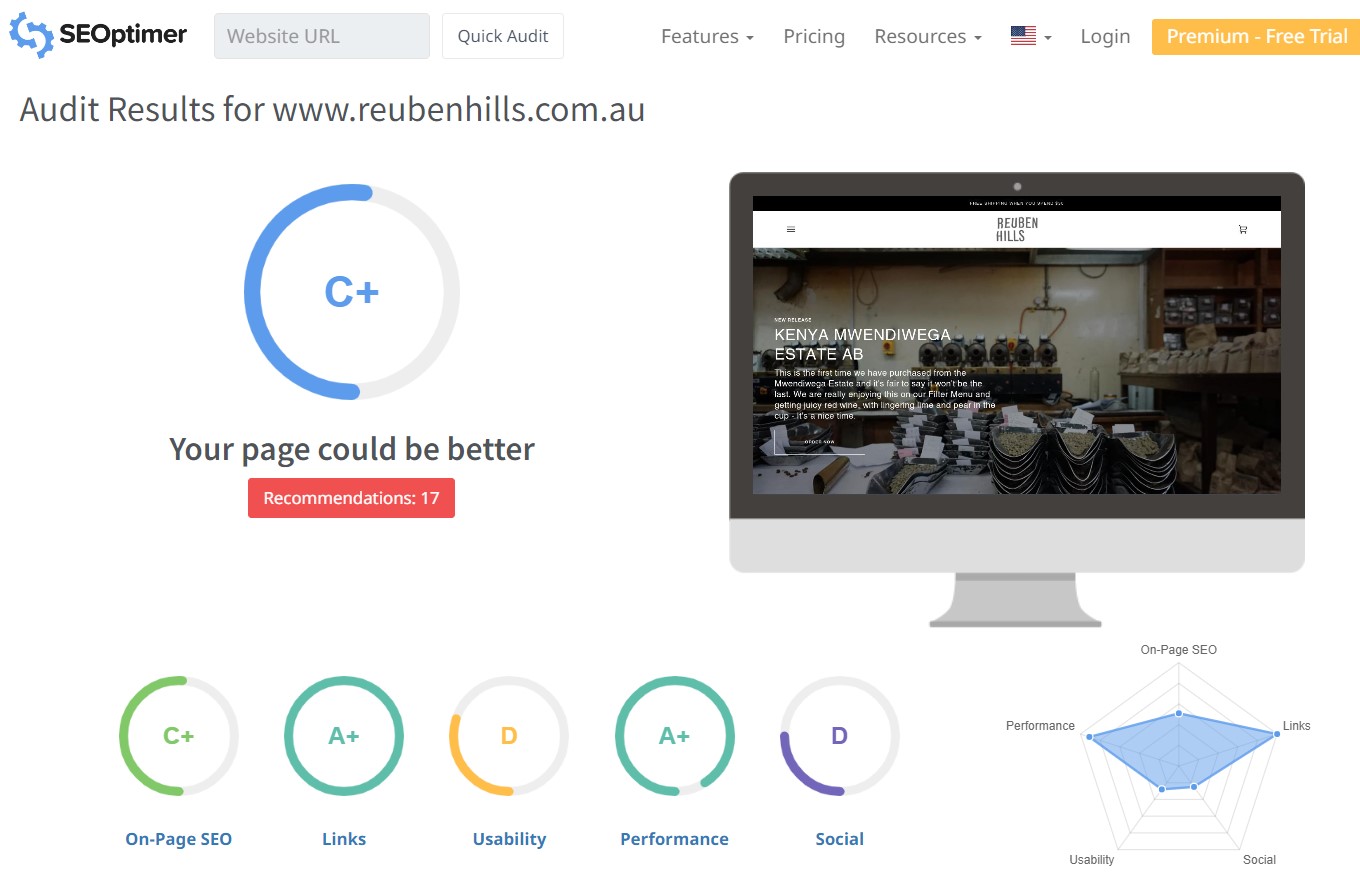
How Much Does an SEO Audit Cost?
Here's a full breakdown of the potential costs associated with an SEO audit:
Basic SEO Audit
A basic audit covers fundamental on-page and technical SEO issues. It typically includes an analysis of your website's structure, keyword usage, meta tags, URL structure, and basic technical issues.
The cost for a basic audit can range from $500 to $1,000 or more, depending on the size of your website and the agency or professional you hire.
Comprehensive SEO Audit
A comprehensive audit goes deeper, examining technical SEO aspects, on-page optimization, off-page factors, content analysis, user experience, and competitive analysis.
The cost for a comprehensive audit can range from $1,000 to $5,000 or more, based on the complexity of your website.
Why are SEO Audits Important?
SEO audits are important for several key reasons:
Identify Issues
SEO audits help uncover technical, on-page, and off-page issues that may be affecting a website's performance in search engines. These issues could include broken links, slow page speed, poor mobile optimization, duplicate content, and more.
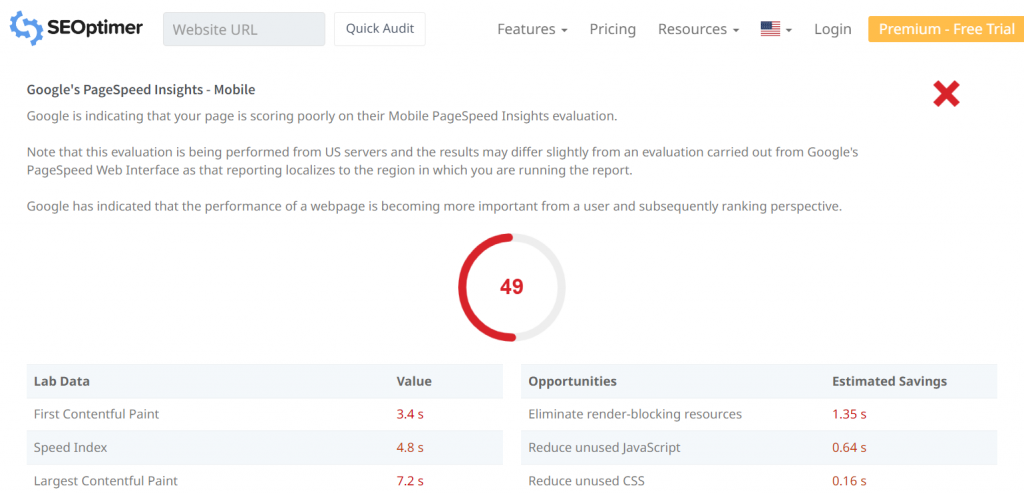
Improve Rankings
By addressing identified issues, websites can improve their search engine rankings. Fixing technical problems, optimizing on-page elements, and enhancing user experience can lead to higher visibility in search engine results pages (SERPs).
Stay Updated with Best Practices
SEO is a rapidly evolving field, with search engines updating their algorithms regularly. An audit ensures that a website adheres to the latest SEO best practices, ensuring it remains competitive in search rankings.
Maximize ROI
Investing in SEO without knowing where improvements are needed can be ineffective and wasteful.
An audit helps allocate resources more effectively, ensuring that efforts are focused on areas that provide the highest return on investment.
Uncover Keyword Opportunities
SEO audits help uncover valuable keywords that a website should be targeting to acquire more relevant organic traffic that could potentially lead to more conversions.
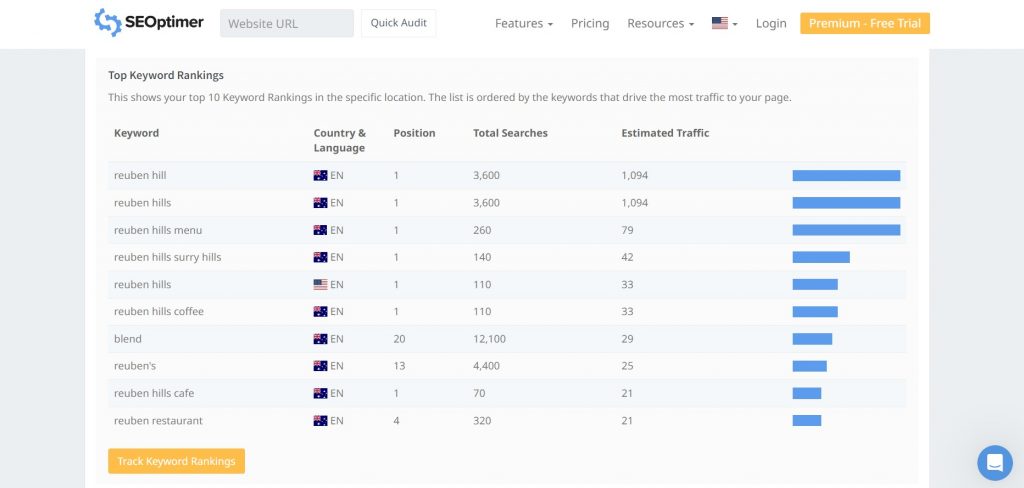
Identify Competitor Strategies
By analyzing competitors' SEO strategies, audits reveal opportunities for differentiation and innovation.
Understanding what competitors are doing well can inform a website's own strategy.
For instance, SEO audits can identify the exact keywords for which the competitors rank and which of their pages receive the maximum traffic.
Enhance Content Quality
Audits assess the quality and relevance of a website's content. Recommendations for content improvements can lead to more informative, engaging, and valuable content that resonates with both users and search engines.
Avoid Penalties
SEO audits can identify practices that may be in violation of search engine guidelines, leading to potential penalties. By rectifying these issues, websites can avoid negative impacts on their rankings.
Long-Term Strategy
An SEO audit provides a roadmap for ongoing improvements. It's not just about fixing current issues but also about building a solid foundation for future SEO efforts.
Optimize Conversion Rates
While SEO primarily focuses on driving organic traffic, an audit may also assess how well the website converts that traffic into leads or sales. Improving conversion rate optimization (CRO) can directly impact business outcomes.
What Does an SEO Audit Include?
An SEO audit typically includes a comprehensive analysis of various aspects of a website's performance, structure, content, and overall optimization for search engines.
Key components of an SEO audit typically include:
On-Page SEO Analysis
One of the key aspects of an SEO audit involves evaluating the on-page elements of a website's individual web pages.
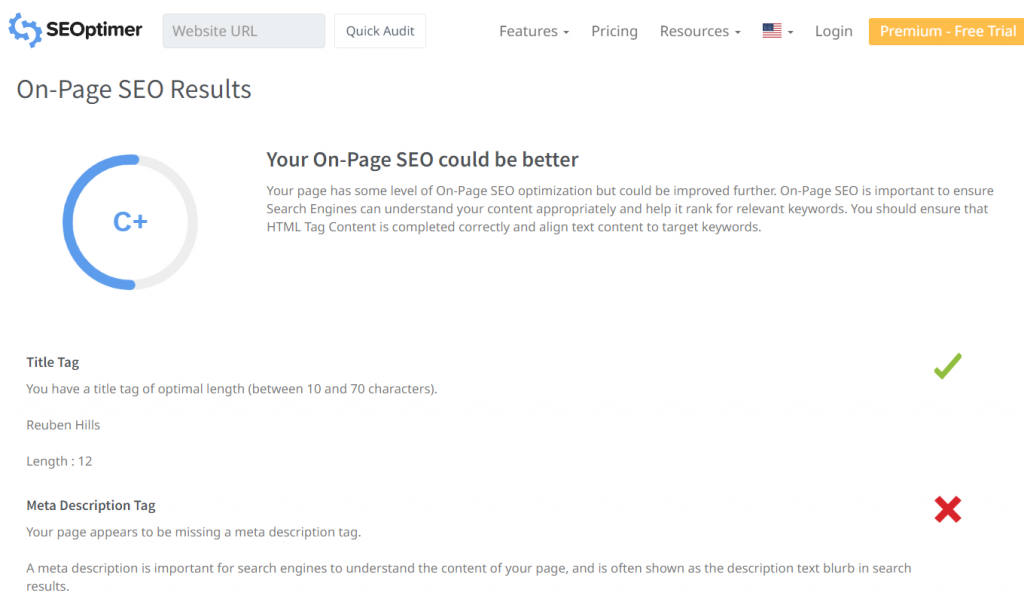
This comprehensive assessment encompasses crucial elements such as title tags, meta descriptions, headings, content quality, strategic keyword usage, and the implementation of internal linking.
Technical SEO Evaluation
This assessment involves reviewing a website's technical aspects, like site speed, mobile-friendliness, URL structure, crawl errors, indexing status, XML sitemaps, and robots.txt.
By identifying and rectifying crawl errors, indexing status issues, and optimizing sitemaps and robots.txt, your website's overall search engine performance and visibility are enhanced, resulting in improved rankings and user satisfaction.
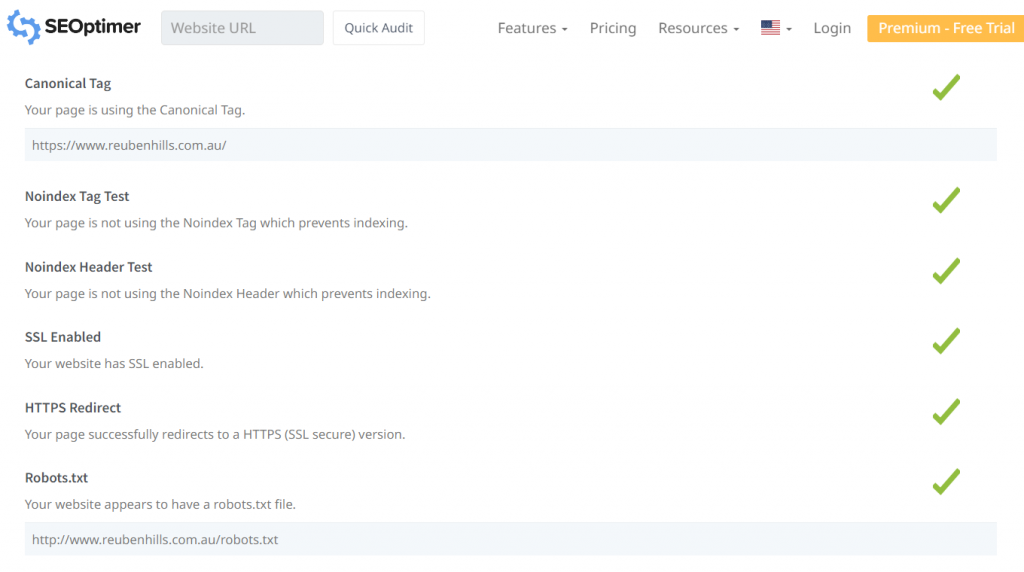
Website Architecture Analysis
This involves assessing how well the website is structured to facilitate user-friendly navigation and seamless access to its content.
By ensuring intuitive menu structures, logical categorization of pages, and clear pathways to information, your website can enhance user experience and encourage visitors to explore further.
Keyword Analysis
Keyword research involves researching and evaluating keywords that align with your website's content, target audience, and industry. This process takes into account factors like search volume, competition level, and user intent.

By identifying the most relevant and valuable keywords, the website can effectively target the queries that potential visitors are searching for.
Backlink Profile Assessment
Backlink analysis involves assessing the quality, quantity, and relevance of external links pointing to the site.
By evaluating these backlinks, the audit identifies valuable opportunities for link building that can enhance the website's authority and search engine rankings.

Simultaneously, the audit helps identify any potentially harmful or "toxic" backlinks that could negatively impact the site's credibility.
Content Quality Review
A content quality audit involves a comprehensive assessment of the textual, visual, and multimedia elements to ensure they align with user needs and search engine guidelines.
By analyzing the depth and accuracy of information, the audit ensures that the content offers value to visitors and addresses their queries.
Moreover, assessing the uniqueness of content prevents duplicate or plagiarized material, reinforcing the website's credibility.
The content's relevance to user intent and industry keywords is also examined to align with search engines' preference for valuable and contextually appropriate information.
Local SEO Analysis
Assessing local SEO factors is a crucial component of an SEO audit, especially for businesses with a physical presence.
This involves a comprehensive evaluation of key elements that impact local search visibility, which includes optimizing the Google Business listing to ensure accurate business information, attractive visuals, and positive customer reviews.

Ensuring consistency in the NAP (Name, Address, Phone Number) details across various online platforms enhances credibility and local search rankings.
The audit also examines local citations, which are mentions of the business across local directories and websites, to strengthen local authority and prominence.

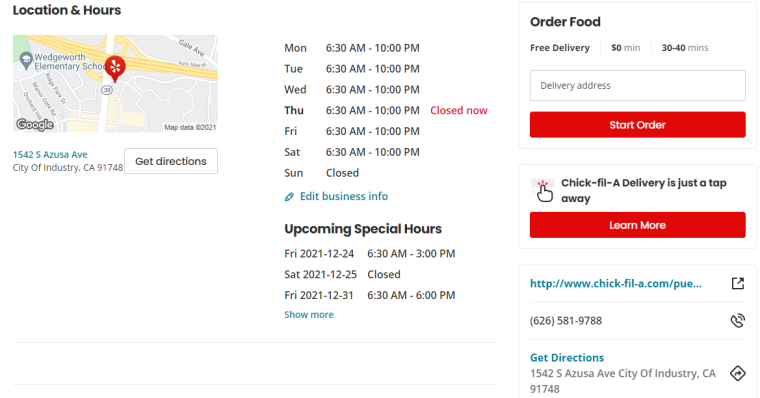
Competitor Analysis
This process involves a thorough examination of rival websites to identify their strengths, weaknesses, opportunities, and potential threats.
By analyzing their on-page optimization, content strategies, backlink profiles, and technical elements, the audit uncovers best practices that can be adopted and areas where your website can differentiate itself.
User Experience (UX) Evaluation
UX audit encompasses a comprehensive assessment of various user-centric elements, including navigation, page load speed, mobile responsiveness, and overall user experience.
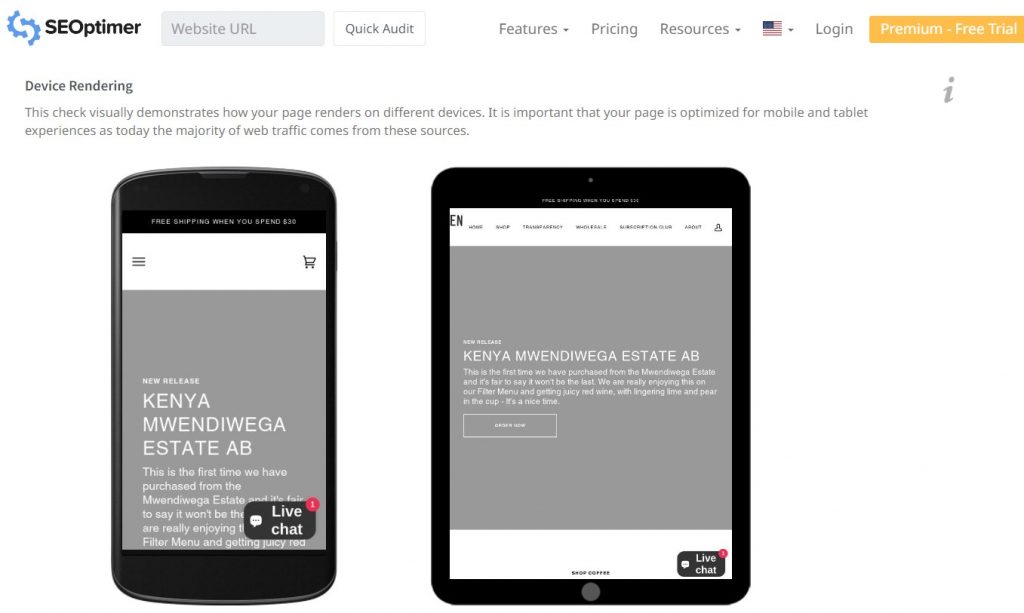
By evaluating the ease with which users can navigate through the site, the audit ensures an intuitive and seamless browsing journey.
Site Security and HTTPS
This audit reviews security best practices, such as implementing SSL certificates, avoiding mixed content issues, and safeguarding against potential vulnerabilities.
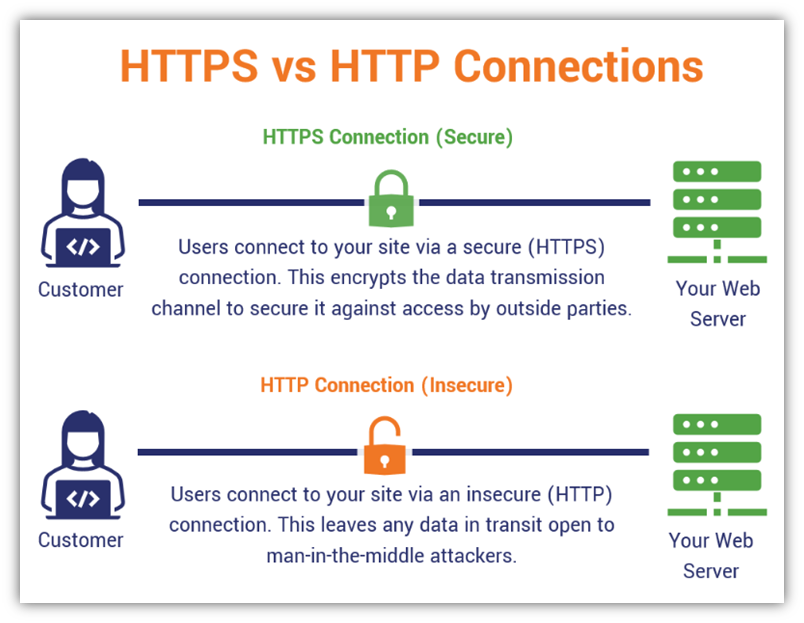
Image source: The SSL Store
This focus on security not only fosters a secure online environment for users but also contributes to higher search rankings by complying with modern web standards and algorithm preferences.
Site Performance and Analytics
This entails a comprehensive evaluation of key indicators such as organic traffic, bounce rate, click-through rate (CTR), and conversion rates. By delving into these metrics, the audit provides insights into how effectively the website is attracting, engaging, and converting visitors.
Indexing and Crawling Issues
This analysis involves a meticulous examination of various technical and structural elements that might restrict search engine bots' access to the website's content.
By detecting and rectifying issues such as broken links, duplicate content, incorrect use of robots.txt, or issues with the XML sitemap, the audit ensures that search engines can efficiently navigate and index the website's pages.
Mobile Optimization
This involves assessing the website's responsiveness and design for mobile devices, ensuring a seamless and user-friendly experience for mobile users.

Image source: Enginess
By scrutinizing the layout, navigation, and content presentation on smaller screens, the audit ensures that visitors accessing the website via mobile devices encounter a smooth and optimized interface.
Penalty Assessment
This process involves a thorough examination of the website's history to determine if it has been penalized for practices that breach search engine rules.
Such penalties can significantly impact a website's visibility and rankings. By identifying any previous penalties, the audit enables proactive measures to rectify issues, adhere to best practices, and engage in the necessary steps to have the SEO penalties lifted.
Recommendations and Action Plan
This phase involves providing tangible guidance to address the issues identified during the audit. These recommendations are designed to enhance the website's SEO performance.
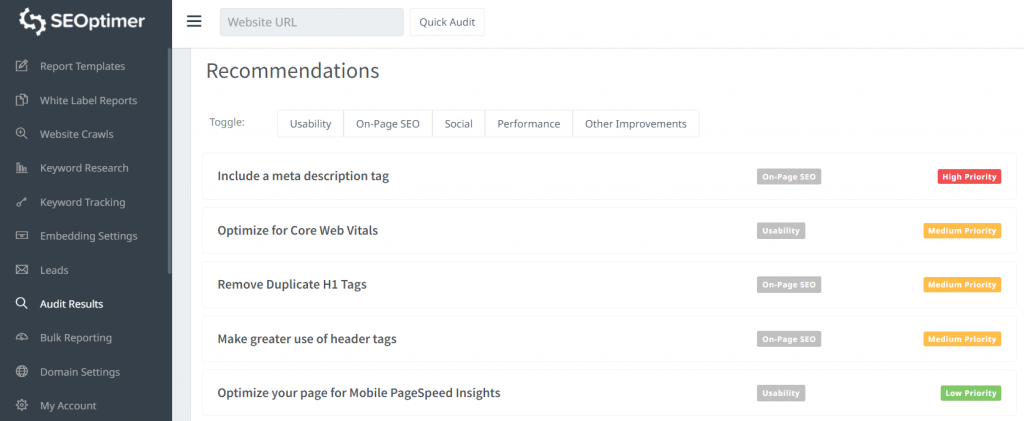
Whether it's optimizing on-page elements, rectifying technical glitches, refining content strategies, or improving user experience, these suggestions provide a roadmap for implementing effective SEO changes.
What Factors Determine the Cost of an SEO Audit?
Here are the top factors that determine the cost of an SEO audit:
Size and Complexity of the Website
Given the sheer scale and complexity of large websites, the process of evaluation becomes inherently more time-consuming and resource-intensive.
SEO professionals invest additional time to comprehensively analyze a greater volume of data, navigate complex navigation hierarchies, and address a larger number of potential issues.
Hence, the SEO audit cost is more for large enterprise-level websites or ecommerce stores compared to smaller sites.
Depth of Analysis
The more thorough and detailed the analysis, the higher the cost. A more in-depth audit may include evaluating every backlink pointing to the domain, assessing user experience, conducting a mobile-friendliness analysis, and performing in-depth competitor research.
Agency vs. Freelancer
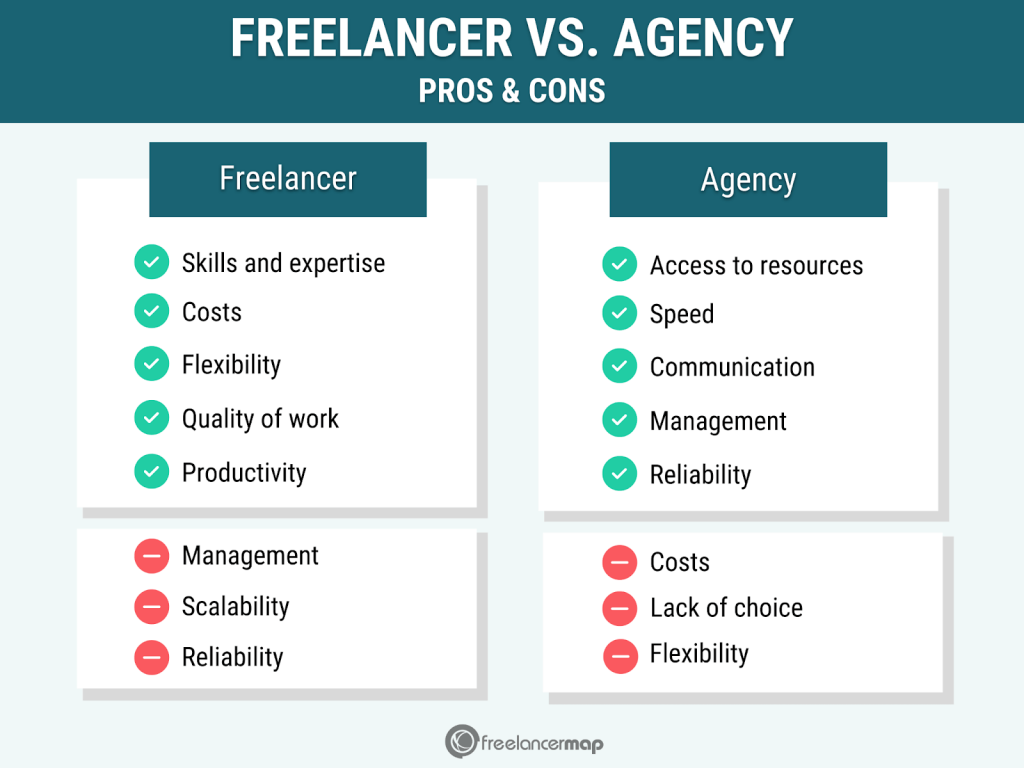
Image source: FreelancerMap
Hiring an established SEO agency will likely cost more than hiring a freelance SEO consultant.
Established SEO agencies typically have a team of professionals with diverse skill sets, including content creation, technical optimization, link building, and analytics. This collective expertise costs more.
Freelance SEO professionals often rely on the skills and availability of a single person. Hence, they are best suited for smaller projects and cost less.
Tools and Software
SEO professionals use various tools and software for keyword research, technical analysis, and reporting. Some of these tools have subscription costs, which may impact the overall audit price.
SEO Recommendations and Reporting
A quality SEO audit includes actionable recommendations and a detailed report explaining issues and strategies for improvement. The cost may include the time required to prepare these recommendations.
Follow-Up Services
Some providers offer follow-up services to help implement the recommended changes. These services can be part of the initial audit cost or billed separately.
Industry and Niche
The competitiveness of your industry and niche can impact the complexity of the audit and, therefore, the cost. More competitive industries may require a more comprehensive analysis.
How Long Does an SEO Audit Take?
Here are some general guidelines for understanding how long an SEO audit might take:
Small To Medium-Sized Websites
For smaller websites with simple structures, a basic SEO audit takes around 1 to 2 weeks to complete. A more comprehensive audit that includes in-depth analysis of technical, on-page, and off-page factors takes around 2 to 4 weeks.
Large and Complex Websites
For larger websites with complex structures, numerous pages, and potentially more technical issues, a basic audit could take 2 to 4 weeks. A comprehensive audit for a large and complex website might require 4 to 6 weeks or more.
Are SEO Audits Worth the Price?
Yes, SEO audits are often worth the price, as they can provide significant benefits for your website's performance, visibility, and long-term success.
It equips you with insights that evolve your strategies for the long term. It's not just about fixing errors; it's about unlocking the doorways to higher search engine rankings, increased organic traffic, and improved user experiences.
By investing in an SEO audit, you're investing in the discovery of untold opportunities - the keywords that can catapult you ahead of your competitors, the backlinks that can add credibility to your domain, and the content improvements that can resonate deeply with your audience.
How to Get an SEO Audit for Free
You can get a free SEO audit from SEOptimer. SEOptimer is a website SEO checker that assesses the top technical ranking factors and beyond, assisting in pinpointing issues that might be hindering your site's full potential.
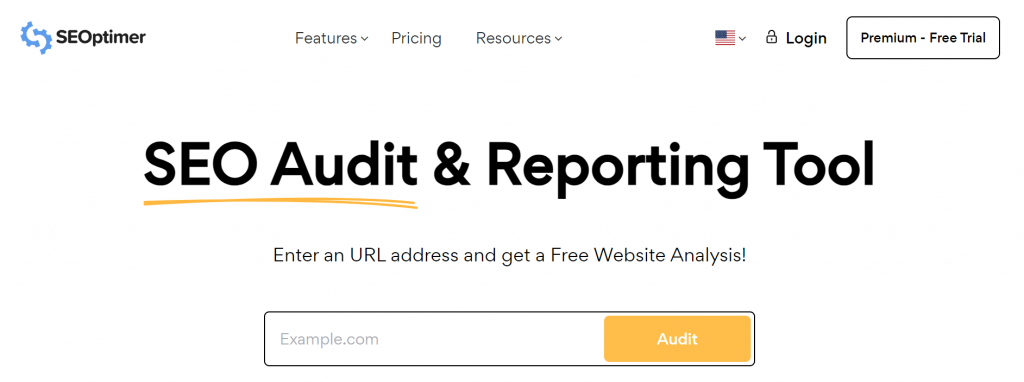
Furthermore, the tool offers a concise, actionable, and prioritized set of suggestions to enhance your website's organic performance.
Here is a step-by-step guide to getting a free SEO audit using SEOptimer:
Visit SEOptimer.com and enter the website URL that you wish to run an audit for.
Click on Audit, and the tool will generate a complete SEO audit listing the top recommendations that you should implement on your website to get better organic visibility.
SEOptimer analyzes the site on the top six ranking factors, which are On-Page SEO, Links, Usability, Performance, and Social, to determine your website’s SEO score.

You can also see the priority level of the recommendations so that you know which suggestions should be implemented first and which ones can be worked upon later.
With a free SEO audit, you can instantly improve the SEO of your website to achieve higher organic rankings and better search engine visibility.
Conclusion
An SEO audit is a necessary element of a successful SEO marketing plan. You should perform regular site audits whenever you make changes to your website structure or content to uncover potential issues on your site.
In summary, smaller site audits take less time and money compared to large site audits. Get started by taking a free SEO audit to see the issues impacting your site’s organic visibility.




